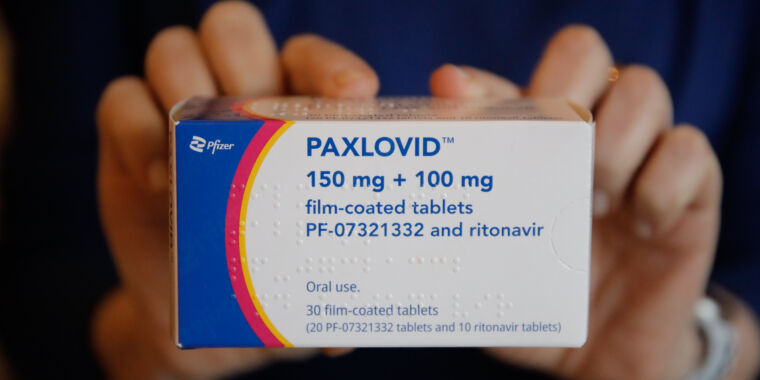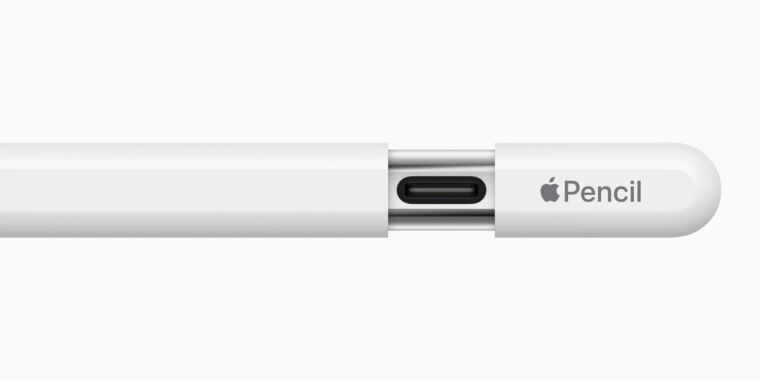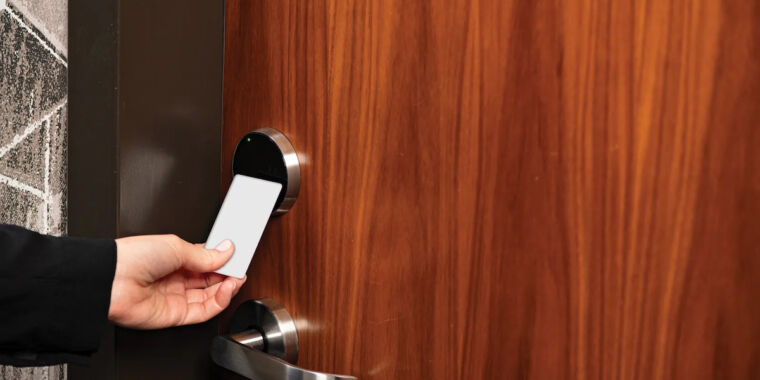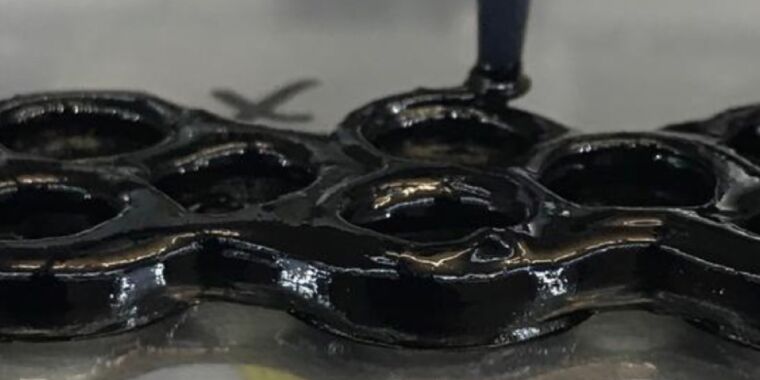
Getty Images | Juj Winn
Twenty phone companies may soon have all their voice calls blocked by US carriers because they didn’t submit real plans for preventing robocalls on their networks.
The 20 carriers include a mix of US-based and foreign voice service providers that submitted required “robocall mitigation” plans to the Federal Communications Commission about two years ago. The problem is that some of the carriers’ submissions were blank pages and others were bizarre images or documents that had no relation to robocalls.
The strange submissions, according to FCC enforcement orders issued yesterday, included “a .PNG file depicting an indiscernible object,” a document titled “Windows Printer Test Page,” an image “that depicted the filer’s ‘Taxpayer Profile’ on a Pakistani government website,” and “a letter that stated: ‘Unfortunately, we do not have such a documents.'”
Yesterday’s FCC announcement said the agency’s Enforcement Bureau issued orders demanding that “20 non-compliant companies show cause within 14 days as to why the FCC should not remove them from the database for deficient filings.” The orders focus on the certification requirements and do not indicate whether these companies carry large amounts of robocall traffic.
-
National Cloud Communications of Texas submitted this Windows Printer Test Page to demonstrate its commitment to fighting robocalls.
-
Evernex of Pakistan gave the FCC its “Taxpayer Profile Inquiry” from a Pakistani government website.
-
Viettel Business Solutions of Vietnam submitted a slide deck titled “Viettel Solutions: Making Smart Cities Vision a Reality.” The slide deck’s intro image is pictured here.
-
Humbolt VoIP of Canada submitted what the FCC called “an indiscernible object.”
Each company will be given “an opportunity to cure any deficiencies in its robocall mitigation program description or explain why its certification is not deficient.” After the October 30 deadline, the companies could be removed from the FCC’s Robocall Mitigation Database. Removal from the database would oblige other phone companies to block all of their calls.
“Removal from the database would require all intermediate providers and terminating voice service providers to cease carrying the companies’ traffic, these companies’ customers would be blocked, and no traffic originated by these companies would reach the called party,” the FCC said.
The FCC also explained that “Commission rules prohibit any intermediate provider or terminating voice service provider from accepting voice traffic directly from any voice service provider or gateway provider, including any foreign voice service provider using North American Numbering Plan (NANP) resources, that does not appear in the Robocall Mitigation Database.”
Delayed enforcement
The companies filed their certifications in September or October of 2021, or in some cases earlier. The FCC issued warnings in January and February of 2022 by informing each company “that its robocall mitigation program attachment contained with its certification may have been uploaded in error because it did not satisfy the Commission’s rules requiring it to describe its robocall mitigation efforts.”
According to the FCC, the companies did not respond or update their robocall mitigation plans. It isn’t clear why it took the FCC roughly 20 months to move from the initial warnings to cutting the companies off from US networks. We contacted the FCC today and will update this article if we get a response.
The voice service companies’ names and locations are Computer Integrated Solutions (Michigan), Datacom Specialists (Ohio), DomainerSuite (Canada), Humbolt VoIP (Canada), National Cloud Communications (Texas), NewWave Consulting (South Carolina), Route 66 Broadband (Arizona), Tech Bizz Solutions (Delaware), Vida Network Technologies (New Jersey), 2054235 Alberta (Canada), Claude ICT Poland (Poland), Evernex (Pakistan), Etihad Etisalat aka Mobily (Saudi Arabia), My Taxi Ride (New York), Nervill (Israel), Phone GS (France), SIA Tet (Latvia), Textodog (Canada), USA-Connect.net (New York), and Viettel Business Solutions (Vietnam).
The FCC requires voice providers to “certify in the Robocall Mitigation Database that they have fully implemented STIR/SHAKEN [Caller ID authentication technology] or have instituted a robocall mitigation program to ensure that they are not originating illegal robocalls.” For certifications about robocall mitigation programs, companies must list the specific “reasonable steps” that they have taken “to avoid originating illegal robocall traffic,” the FCC says.
Eighteen of the 20 companies that received notices yesterday certified that they hadn’t implemented STIR/SHAKEN on any portion of their networks, while two others certified that they partially implemented the technology. Because of their STIR/SHAKEN implementation failures, the companies had to file certifications on their robocall mitigation programs.
You can see the companies’ submissions on the Robocall Mitigation Database. The following companies’ robocall mitigation plans consisted only of a blank page or a blank image: Computer Integrated Solutions, Datacom Specialists, NewWave Consulting, Vida Network Technologies, and Claude ICT Poland.
Some others were almost entirely blank. Etihad Etisalat (Mobily) submitted a blank page with an uneven horizontal line. The Phone GS submission “was a blank page that contained only an illegible signature,” the FCC said. DomainerSuite attached “a blank page that contained only the word ‘NOTHING.'”








